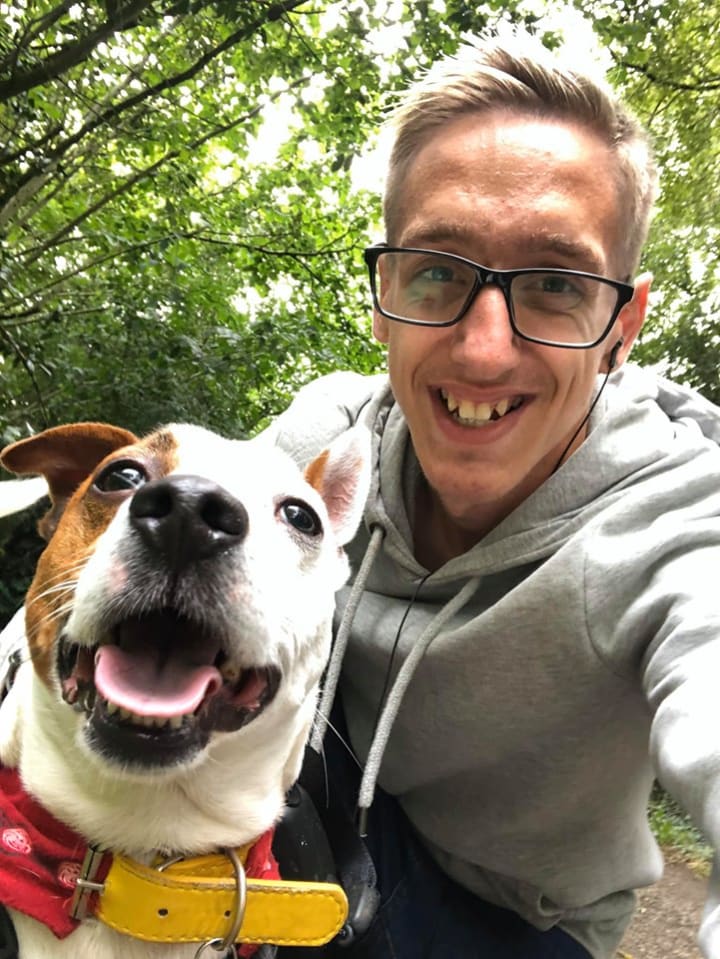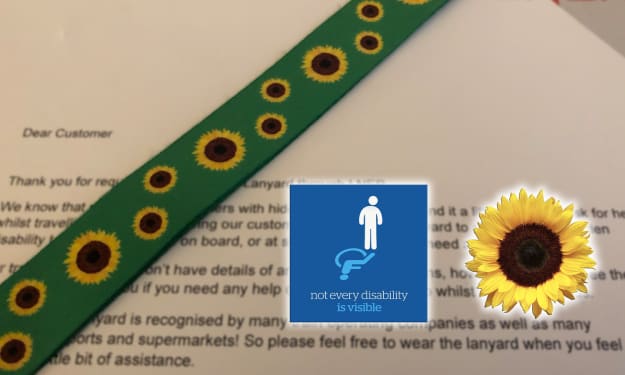How I've Recovered from My Suicide Attempt This Time Last Year
Friends and family have got me to where I am today

From October 2018, my mental health began to deteriorate following the passing of my grandfather on 30th September 2018. Grief is different in everyone. Some know how to cope with it, whereas some don’t. For me, I’d never fully experienced grief. I’ve lost loved ones in before my grandfather passed last year, but I wasn’t old enough to understand grief overall.
When he passed, my mind drained. There was nothing left in there because someone who I loved dearly had been taken from me and I was broken. Grief got the better of me and my mental health began to spiral out of control to the point where I wanted to end my life.
On Sunday 11th November I attempted to end my life using alcohol as the source. Every year, roughly 80,000 people around the world take their own lives. In the United Kingdom, there were 6,507 deaths by suicide (2018). Men made up three quarters of that figure. Attempting suicide is something I never expected to do. It all happened so quickly. If I was alone, I would’ve succeeded. I was with a friend at the time, but he didn’t know of my intentions.
Following my attempted suicide, I’ve been recovering non-stop, and with the help and support from family and friends, I’ve managed to get to where I am today. This is how I’ve recovered.

Developing an alcohol problem during the grief process was the key factor to my attempted suicide. Going sober was my first step to recovery. From Monday 12th November 2018, I gave up alcohol as advised by my university friend, Niall. Together we set a target of having no alcohol from 12th November until Christmas Day. Forty-four days sober, I did it. I made it to Christmas 2018 without a drop of alcohol entering my body between 12th November and 25th December.
After realising alcohol was weakening my mental health, it’s something I hardly drink now. Yes, I have the occasional couple of pints down the pub from time to time, but on average per calendar month, I consume roughly three pints. That’s because of Niall. He sorted my drinking problem out, and honestly, I don’t miss alcohol at all. After two pints in the pub, I’ve got it set in my mind that as part of my recovery schedule, two pints is the maximum.
By sticking to that, I can enjoy a pint with my friends socially like I used to. Alcohol no longer controls my life.

Keeping active is an important part of my recovery schedule. Forcing myself out of the flat to do exercise has helped build up my self-confidence and self-esteem. I’ve signed up to my local PureGym in Portsmouth and I go there almost every day, following the same gym routine I’ve set for myself. On my most days I do the following:
- One ten-minute run at the speed of 10kmh.
- One ten-minute run at the speed of 15kmh.
- One five-minute cool down at the speed of 5kmh.
- Three sets of ten reps on the upper body weight machines, with the weight size varying on each machine.
Sticking to this routine on every gym visit means I can block myself from the outside world and focus on my goals. I trained and pushed myself so hard in the run up to the Great South Run, which meant I achieved a result better than expected. I completed the ten mile road race in Portsmouth & Southsea in one hour thirteen minutes. My target was 100 minutes. So, beating my target by nearly half an hour was a massive achievement for me and raised my positivity so much.

Telling your family and close friends how you’re feeling is vital. If you’ve had a good day, tell them why it was good. If it was a bad day, and we all have them, then explain what went wrong so you can work out a plan to overcome your struggles.
If you’re ever struggling, telling the people closest to you is the hardest bit. I didn’t tell my mum about my drinking problem until the day after my suicide attempt. That was nearly two months of suffering on my own in the dark. However, once you’ve told them, they will be so supportive no matter what. The sooner you tell someone, the quicker you can recover and get back on track. Solve the small problem before it becomes a big one.
All of my family have been supportive to me, along with my closest of friends, who I cherish. I saw the rough side of life last year and without them, I wouldn’t have graduated in July this year, I wouldn’t have celebrated my 22nd birthday and I wouldn’t have started my master’s course at the University of Portsmouth. The more you keep in contact, the better the outcome for you.

I leave you with a photo of me and my dog, Buddy, because he’s adorable. Walks with him and getting fresh air are a chance to just switch off for an hour or so and really take in how important it is to keep a positive mental health.
Everyone’s method of recovery will be different, and everything stated above is what has got me into a much better place. When life hurts, and it will, just remember there will always be a shoulder to cry on somewhere. Crying is okay. It releases emotions and helps you realise that life needs to hurt you in order to build up a wonderful future.
About the Creator
Lewis Jefferies
MA Media and Communication graduate from the University of Portsmouth - Massive Doctor Who Fan.






Comments
There are no comments for this story
Be the first to respond and start the conversation.